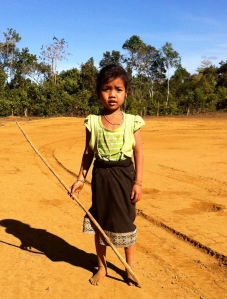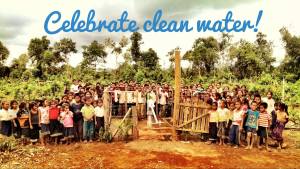Through the wonders of social media I was blessed to connect with Janelle Kaczmarzewski. Her and her boyfriend Tyson are combining their passion of coffee and philanthropy to create change in the rural village of Paksong, Laos.
I hope you follow their journey as this September they embark to create the worlds first philanthropic coffee roaster.
They were gracious enough to do an interview for us, but if you’re eager to get connected with them, you can find the links on the bottom to partner and follow their work.
Without further ado;
Tyson, tell us a bit about yourself and how your journey from corporate sales to starting a philanthropic coffee roasting company in Laos?
After graduating from the University of Washington, I worked several sales jobs. Though sales came naturally to me, after my third and most ‘successful’ year I realized that something was pulling me out of the unremarkably average cubicle I was spending so much of my life in. On a rainy November day five years ago, I booked a one way ticket to southeast Asia. From my solo travel experience, I began a one-for-one business model importing Lao coffee to Seattle; bags of coffee amounted to books and clean water for children. Jhai is the evolution of this humanitarian business venture that was born from an inspiring backpacking trip abroad after stepping into the unknown, away from my normative life and financial security.
What have you learned from spending time in Laos regarding their struggles and greatest needs?
The number two killer of Lao children under five is diarrheal disease, which is completely preventable with access to clean water and basic sanitation education. In addition to getting sick from drinking polluted water, a more frequent cause of children getting sick is going to the bathroom without washing hands afterwards. Food is often prepared without sanitary considerations, and meals are typically eaten with their hands (picture sticky rice). Sanitary education is as crucial as clean water.
Give us a little introduction to what Jhai is and what they do.
Jhai Coffee House is the world’s first completely philanthropic coffee roaster & cafe located at the source. All business profits are generated and then invested into sanitary education and clean water projects in the local Lao coffee growing community. When we arrive in Paksong in September, we will be opening a coffee roaster and cafe along with running coffee tours. With over 200 people visiting the Bolaven Plateau trying to experience the coffee culture, running tours, serving coffee and running a full-scale restaurant will allow for us to generate revenue, which will be invested in sanitary education and clean water.
What kind of impact do you see a social enterprise such as Jhai having in the Laos?
SOCIAL
We believe that if a non-profit doesn’t provide social impact metrics, they shouldn’t be funded. Our donors, investors, partners and the community at large deserve the right to know how our projects are making a measurable impact in the community. To provide this transparency, we are working with Seattle, social metric consulting firm, Upaya Social Ventures. By working with the Upaya team, we have developed a strategy for gathering data using a simple community survey.
By creating a sustainable philanthropic entity, we will measure our success not by the amount of money our coffee business brings in, but by how many people gain access to clean water sources and better sanitation. We hope to create an opportunity for better health and wellness for the beautiful people of Laos so that they can shift their focus from survival to education and improved livelihoods.
COFFEE
Ethiopians have a long history of producing some of the world’s best coffee because they drink coffee. Most coffee producing regions in this world are tea drinkers and have never even tasted their own coffee, including Laos. By roasting coffee at the source, we open up the opportunity for farmers to try high quality roasted coffee. In doing so, this will increases the quality of coffee over time because we’ll be able to identify and incentivize the villages that produce the best beans so that better growing and cultivation practices are adopted throughout the region. Additionally, allowing the community to try their own coffee creates the full circle picture and pride in the product will result.
We hope that the world perceives Lao coffee culture as something unique and unlike any other place in the world. The difference will be in the integration of the coffee farmers as a part of our coffee community culture so that they understand their customers better. By having a place where farmers and coffee drinks mingle, we shift the relationship and paradigm into something very special.
Beyond increasing coffee quality, providing a tourist destination on the Bolaven Plateau will generate more revenue that will directly benefit the local people both in increasing demand and providing clean water.
Can you explain the platforms Jhai is using through coffee and tourism to bring change?
We’re partnering with Green Discovery, the largest adventure travel and ecotourism company in Laos to offer our coffee tour package to their many clients. Once the travellers arrive in Paksong, we’ll take them on a tour of our coffee plantations amidst a dramatic landscape to teach them about the different kinds of coffee and the farming techniques. They will then experience the coffee processing equipment and how the beans are dried, pulped and sorted before being bagged. We want this tour to be very hands-on, so we will arrange for the guests to plant coffee trees or pick coffee berries, depending on the season.
We’ll then bring them over to our coffee-house where they’ll receive a roasting tour, coffee cupping and amazing meal from our full-scale restaurant. This entire experience will all be conducted with the knowledge that their purchases will be directly benefiting the local community, by providing families with clean water and improved sanitation.
Many tourists (100-200, depending on season) already come to the Bolaven Plateau to see what the coffee and tea growing communities are like, but there is currently nothing for them to experience. We look forward to welcoming upscale business coffee buyers and wandering backpackers alike.
What is the first goal or milestone Jhai wants to reach in the next year or two?
We believe clean water and sanitation are fundamental human rights; our mission is to help bring 1400 families on the Bolaven Plateau sanitary education and clean water by the end of 2014. In the short run, as soon as we arrive in Laos, we will be putting in a clean water pump in one rural village. This water pump will be Jhai’s first project and we will celebrate with everyone in Laos and the Jhai Tribe back in the states!
How about in 5-10 years?
We see Jhai becoming a completely self-sustaining model of philanthropy that will become an earmark for other countries around the world. Jhai will be a full-scale coffee shop, roaster, tourist hub & cafe that attracts tourists, coffee enthusiasts and backpackers alike. It will also be a hub for social entrepreneurs to see our model and use it as inspiration for their own projects. We also intend to attract roasters from all around the globe who will be purchasing larger container loads from us. Our goal is to create exceptional quality coffee.
Nobel Peace Prize winner Muhammad Yunus seems to have had a major impact on the creation and direction of Jhai. Can you take explain to us what Social Business means to you?
Muhammad Yunus pioneered social business as a way to harness the free market to solve social problems of poverty, hunger and inequality. Social Business is a means of sustainable philanthropy. You see, a traditional charity cannot stand on its own feet; they remain perpetually dependent on donations. Their charity dollars are raised, used for good, and then they are gone. These projects dry up as soon as their funds do. However, If you take that same charity dollar and put it into a social business format, that dollar can have endless life to do endless good. Many more people can be reached as that dollar recycles itself back and forth, creating a lasting, sustainable benefit for the people who need it.
Social businesses are 100% philanthropic; no excess profits can go into the pockets of owners or operators. A true social business serves humanity and is not a gimmick or marketing ploy to get customers.
Where can we send people to get involved and learn more about Jhai?
We’ve just launched our Indiegogo campaign! Check it out here: bit.ly/jhaicoffeehouse
And please share it!
Jhai Coffee House’s facebook page is located here: https://www.facebook.com/JhaiCoffeeHouse
Twitter is located here: https://twitter.com/jhaicoffeehouse
Our website is here (make sure to check out our short video!):
www.jhaicoffeehouse.com

